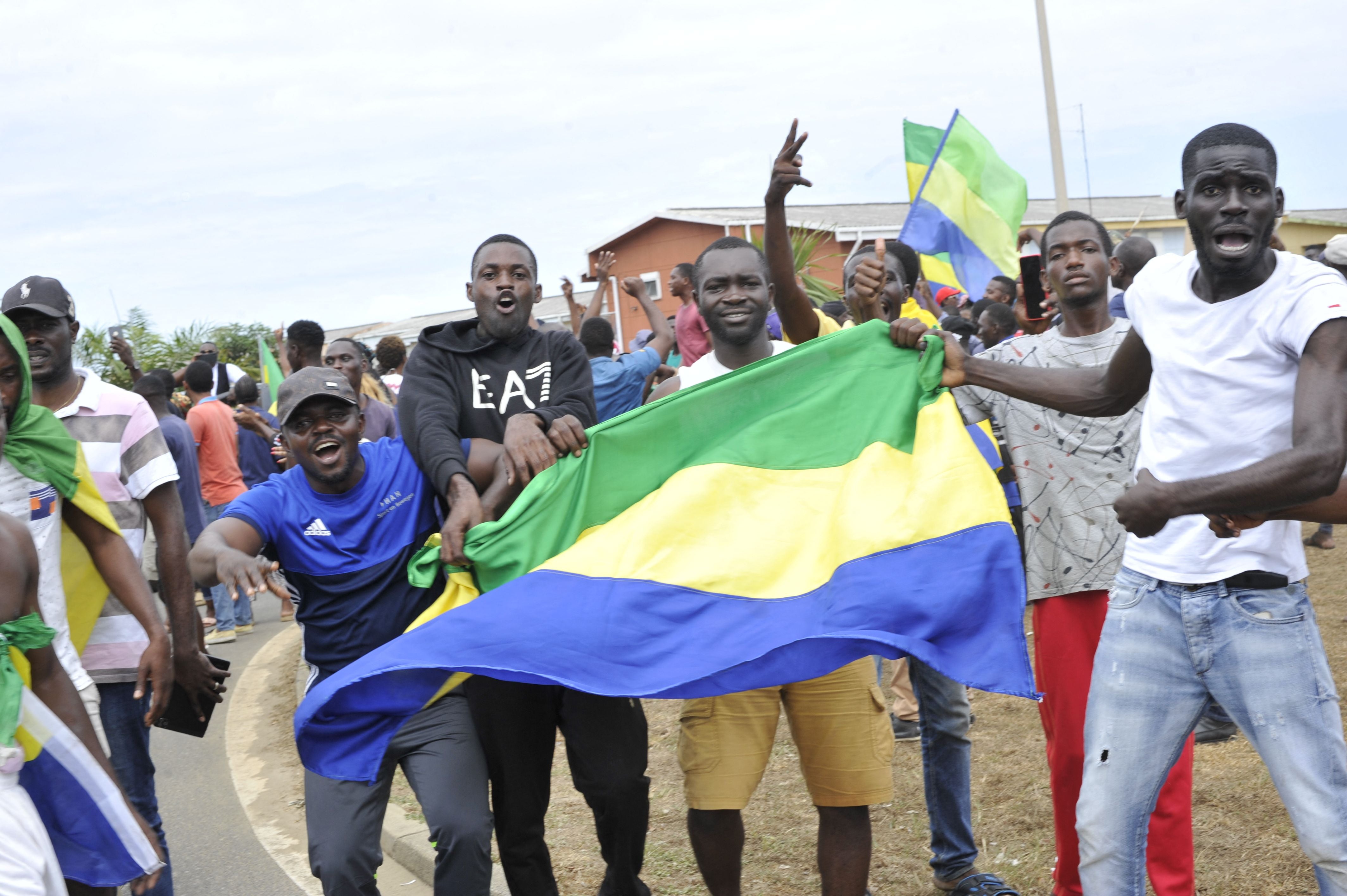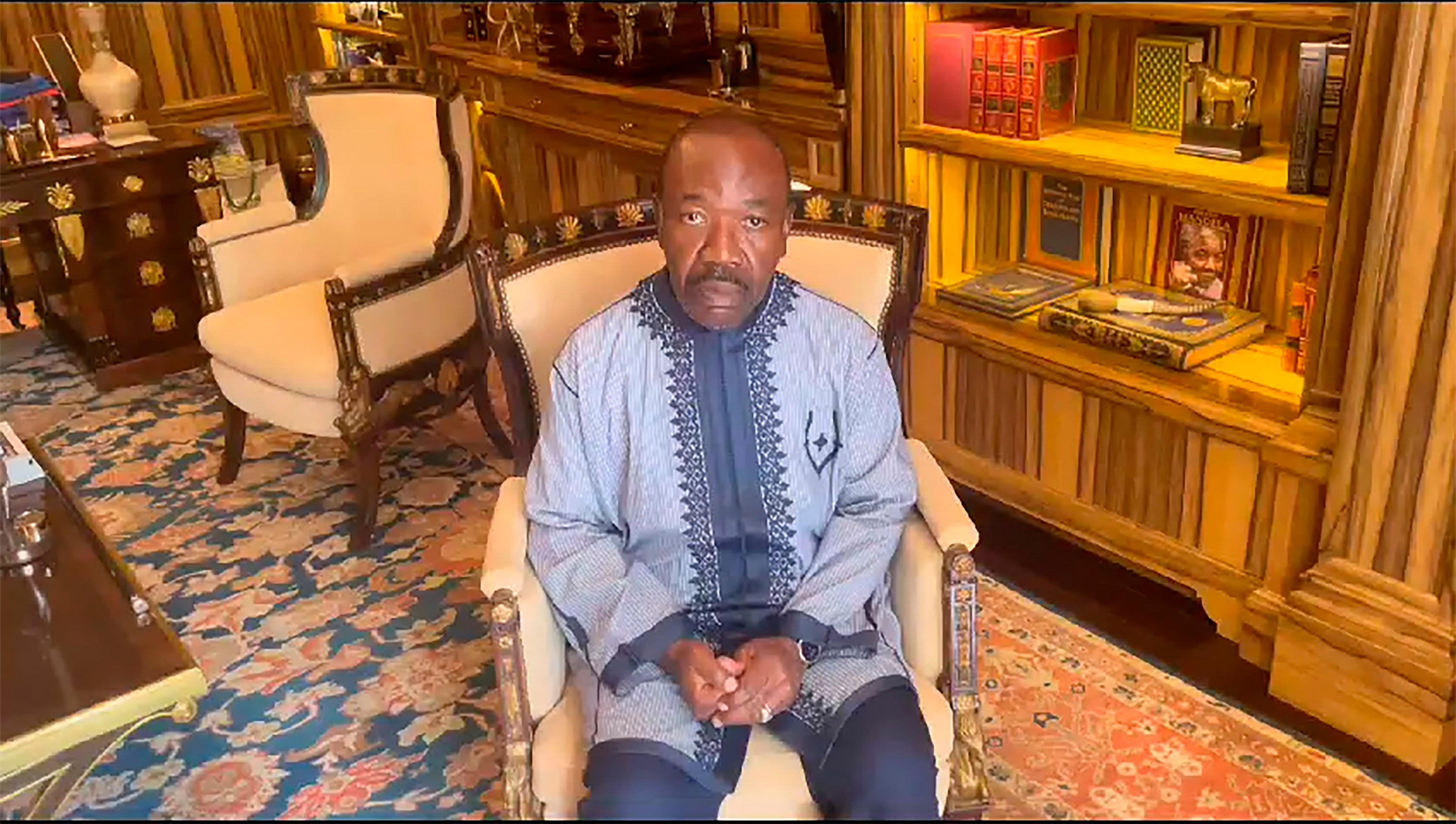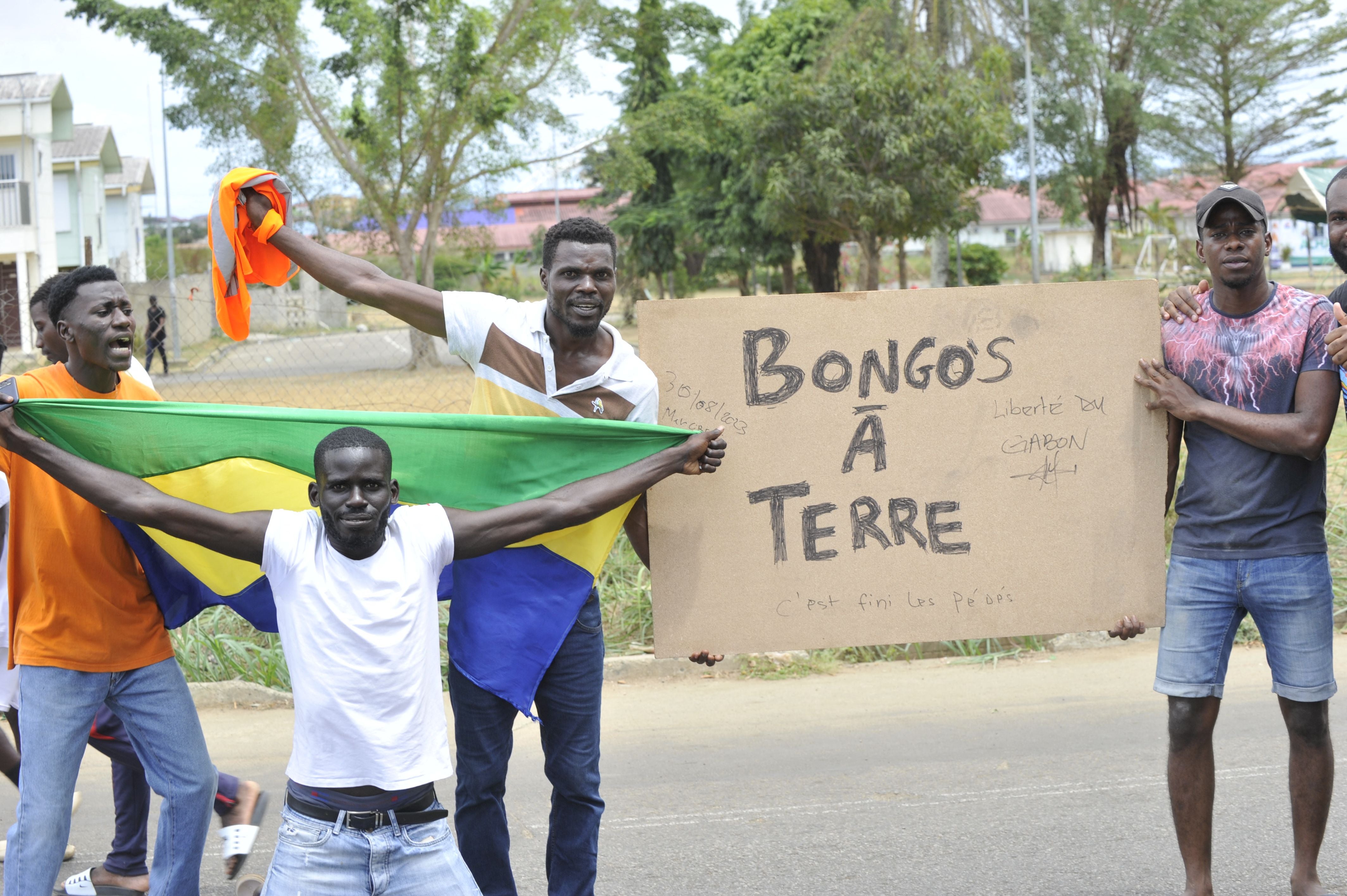Gabon president Ali Bongo ‘under house arrest’ as military says it has seized power in coup
President pleads for support and calls for citizens to ‘make noise’ in video from his residence
Your support helps us to tell the story
From reproductive rights to climate change to Big Tech, The Independent is on the ground when the story is developing. Whether it's investigating the financials of Elon Musk's pro-Trump PAC or producing our latest documentary, 'The A Word', which shines a light on the American women fighting for reproductive rights, we know how important it is to parse out the facts from the messaging.
At such a critical moment in US history, we need reporters on the ground. Your donation allows us to keep sending journalists to speak to both sides of the story.
The Independent is trusted by Americans across the entire political spectrum. And unlike many other quality news outlets, we choose not to lock Americans out of our reporting and analysis with paywalls. We believe quality journalism should be available to everyone, paid for by those who can afford it.
Your support makes all the difference.Mutinous soldiers seized power in Gabon in the early hours of Wednesday and put President Ali Bongo under house arrest – moments after he was declared the winner in an election extending his family’s 55-year rule.
A dozen senior officers appeared on television to declare a coup d’état, minutes after the central African state’s election body announced Mr Bongo had won a third term in a disputed election. Gunfire was heard in the centre of the capital, Libreville.
They declared the election results void – saying Saturday’s poll result was not credible – and announced the closure of borders and the dissolution of state institutions.
They also said they had detained Mr Bongo, who took over in 2009 from his father Omar, who had ruled since 1967. They said they had arrested the president’s son, Noureddin Bongo Valentin, and others over allegations of corruption and treason. Opponents say the family has done little to share the state’s oil and mining wealth with its 2.3 million people. Violent unrest broke out after Mr Bongo’s disputed 2016 election win and there was a foiled coup attempt in 2019.

Mr Bongo pleaded for support, appearing in a video showing him sitting in a chair with a bookshelf behind him. He said he was in his residence while his wife and son were in different places. “I’m calling you to make noise, to make noise, to make noise really,” he said.
Instead, hundreds took to the streets to celebrate the apparent end of his government amid widespread frustration over the rising cost of living and other issues.
“I am marching today because I am joyful. After almost 60 years, the Bongos are out of power,” Jules Lebigui, a jobless 27-year-old, told Reuters, having joined the crowds on the streets of the capital.
Gabon is a member of the Organization of the Petroleum Exporting Countries (Opec), with a production of some 181,000 barrels of crude oil a day, but its population are enduring high unemployment. Nearly 40 per cent of Gabonese aged between 15 and 24 were out of work in 2020, according to the World Bank.
The results of the elections had been delayed since Saturday as the opposition claimed it was marred by fraud. A lack of international observers, the suspension of some foreign broadcasts and a decision to cut internet service and impose a night-time curfew after the poll had raised concerns about the vote’s transparency. Mr Bongo’s team rejected allegations of fraud.
After the military’s TV announcement, internet access appeared to be restored.

If successful, the Gabon coup would be the eighth in West and Central Africa since 2020. The most recent, in Niger, was in July. Military officers have also seized power in Mali, Guinea, Burkina Faso and Chad, erasing democratic gains since the 1990s.
“If this is confirmed, it is another military coup which increases instability in the whole region,” said EU foreign policy chief Josep Borrell, speaking at a meeting of EU defence ministers in Toledo.
“The whole area, starting with Central African Republic, then Mali, then Burkina Faso, now Niger, maybe Gabon, it’s in a very difficult situation and certainly the ministers ... have to have a deep thought on what is going on there and how we can improve our policy in respect with these countries,” he said.
He added that this instability in the region is a “big issue for Europe”.

In his annual speech last month marking independence day for Gabon, Mr Bongo had said he would not allow the country to follow the path of Niger. “While our continent has been shaken in recent weeks by violent crises, rest assured that I will never allow you and our country Gabon to be hostages to attempts at destabilisation. Never,” he said.
At a time when anti-France sentiment is spreading in many former colonies, French-educated Mr Bongo met Emmanuel Macron in Paris in late June and shared photos of them shaking hands. French government spokesperson, Olivier Veran, said: “France condemns the military coup that is underway in Gabon and is closely monitoring developments in the country, and France reaffirms its wish that the outcome of the election, once known, be respected.”
France has about 350 troops in Gabon. Its forces have been forced out of Mali and Burkina Faso in recent years.
Unlike Niger and other Sahel countries, Gabon, which lies further south on the Atlantic coast, has not had to battle destabilising Islamist insurgencies – but this latest coup merely adds to the volatility in the region.
Russia said it was also closely following the developments in the African nation, while China has called for a peaceful resolution. The chair of the African Union Commission, Moussa Faki Mahamat, has called on Gabon's army to ensure the safety of Mr Bongo and his family and condemned the attempted coup.
Reuters and Associated Press contributed to this report




Join our commenting forum
Join thought-provoking conversations, follow other Independent readers and see their replies
Comments